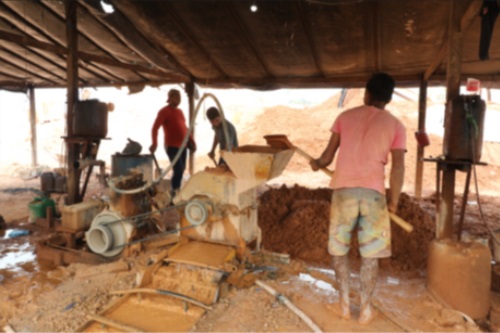
Pará, a state in the heart of the Amazon, is home to the majority of Brazil’s indigenous communities and also the biggest gold producer in the country
New research from the United Nations Office on Drugs and Crime (UNODC), as part of the Tapajós Project, has shed a light on the living and working conditions of goldminers and their communities. According to the findings, a large proportion of workers are in a situation of social vulnerability, with a high demand for health and social assistance services. Equally, the study also demonstrated that around 40 percent of these workers could be considered victims of human trafficking and forced labor.
The innovative report will serve as a basis for targeted government actions to prevent human trafficking among affected communities, to protect victims and to enhance justice in the region.
UNODC applied to this project a human-rights based approach, aiming at better understanding the vulnerable conditions of life and work that small-scale miners and their communities face.
On average, the miners who took part in the study reported that they work around 12 hours a day, six and a half days a week. According to the report, 44% of the sample reported that their current professional roles were different from what was agreed upon at the time of recruitment. This was the most common indicator of forced labor reported by the miners that can be related to deceptive recruitment practices. Likewise, 40% of the sample reported being charged inflated prices for goods and services they purchased from their employers. This practice can be perceived as debt bondage, an indicator of human trafficking that involves a person working to repay debts incurred before or during employment.
Lastly, the research also collected data about the needs of these small-scale miners and their communities regarding social services. Among all service needs listed, most respondents (85%) indicated their need for professional medical care. Moreover, over half of the respondents (58%) shared their need for shelters and sustenance assistance.
Under this project, UNODC is working closely with the Brazilian Government and all related national authorities to support anti-trafficking efforts and to enhance the response in the state of Pará.